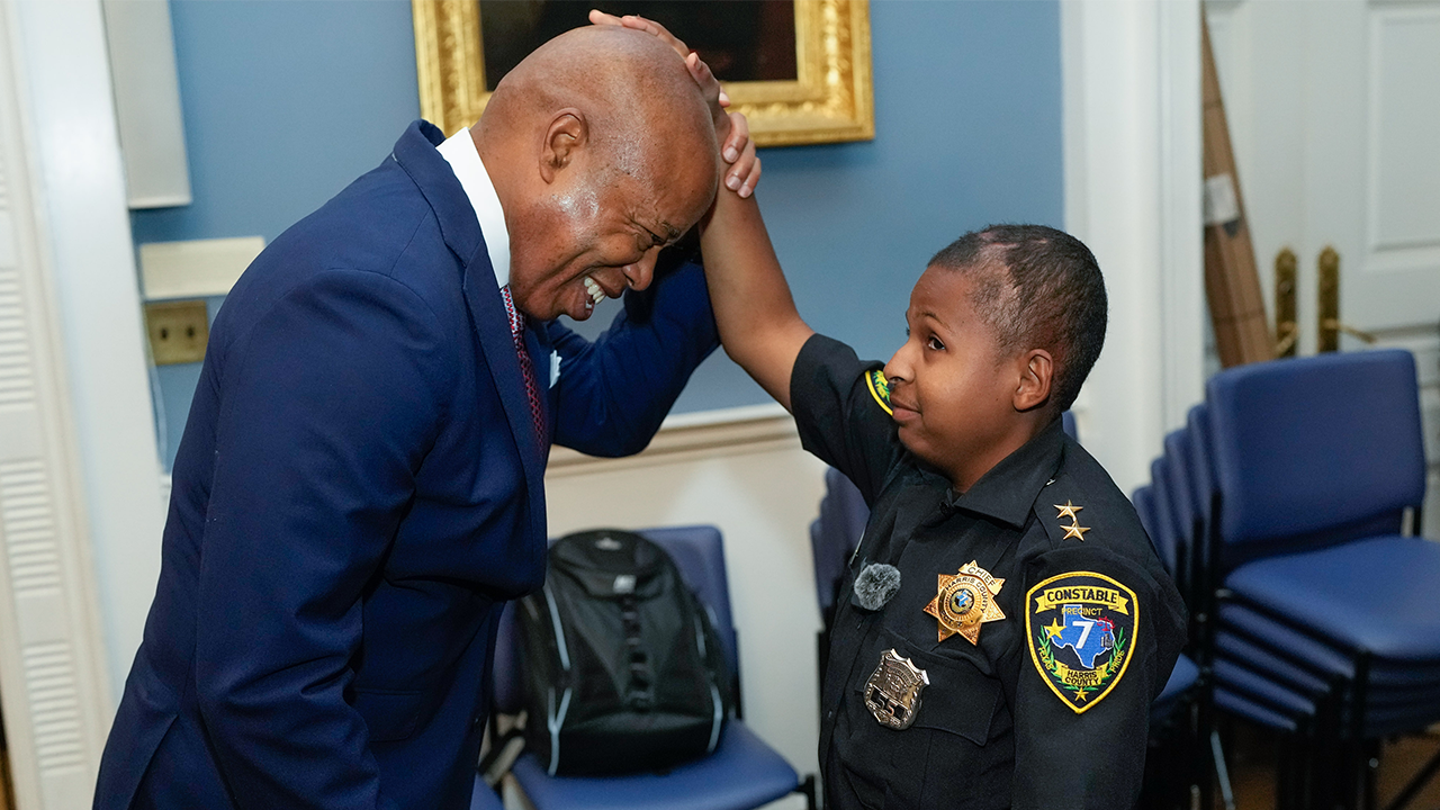
Child cancer survivor hailed by Trump sworn in as NYC honorary deputy mayor
Entities mentioned:
- Devarjaye 'DJ' Daniel: Determination, Recognition, Enthusiasm
- Eric Adams: Professional pride, Duty, Recognition
- Kaz Daughtry: Duty, Professional pride
- Theodis Daniel: Loyalty, Ambition, Pride
- Donald Trump: Recognition, Influence, Legacy
Article Assessment:
Credibility Score: 75/100
Bias Rating: 55/100 (Center)
Sentiment Score: 70/100
Authoritarianism Risk: 30/100 (Generally Democratic)
Bias Analysis:
The article presents a mostly balanced view, focusing on the positive story while briefly mentioning potential controversies. It leans slightly right by highlighting Trump's involvement, but overall maintains a centrist approach.
Key metric: Public Trust in Government Institutions
As a social scientist, I analyze that this article positively impacts public trust in government institutions by showcasing a heartwarming story of a young cancer survivor being honored with ceremonial positions in law enforcement. The recognition of DJ Daniel by various levels of government, from local to federal, demonstrates a human side to bureaucracy and may increase public goodwill towards these institutions. However, the brief mention of indictments against Mayor Adams' associates suggests ongoing challenges in maintaining public trust, which could partially offset the positive impact of Daniel's story.

Fight over policing DC moves to Congress as parties split on control
Entities mentioned:
- U.S. Congress: Power, Control, Influence
- Washington D.C.: Self-preservation, Freedom, Security
- President Trump: Power, Control, Influence
- Republican Party: Control, Power, Righteousness
- Democratic Party: Justice, Freedom, Unity
- Rep. Andy Biggs: Control, Righteousness, Ambition
- Rep. Anna Paulina Luna: Control, Power, Loyalty
- Rep. Andy Ogles: Control, Power, Loyalty
- Sen. Mike Lee: Control, Power, Righteousness
- Rep. James Comer: Control, Righteousness, Professional pride
Article Assessment:
Credibility Score: 75/100
Bias Rating: 55/100 (Center)
Sentiment Score: 40/100
Authoritarianism Risk: 65/100 (Authoritarian Tendencies)
Bias Analysis:
The article presents multiple viewpoints and provides context for both Republican and Democratic positions. While it leans slightly towards emphasizing Republican actions, it also acknowledges potential drawbacks and Democratic counter-arguments.
Key metric: Federal-Local Government Relations
As a social scientist, I analyze that this article highlights a significant power struggle between federal and local government, specifically focusing on Washington D.C.'s home rule. The debate over policing in D.C. serves as a microcosm for broader issues of federalism and local autonomy in the United States. The Republican efforts to increase federal control over D.C. reflect a trend towards centralization of power, while Democratic resistance aims to maintain local governance. This conflict has implications for the balance of power between federal and local authorities, potentially setting precedents that could affect other cities. The article also underscores the political nature of crime and policing issues, with both parties attempting to leverage these topics for electoral advantage. The complexity of D.C.'s unique status as a federal district further complicates the issue, highlighting the ongoing challenges in American federalism.